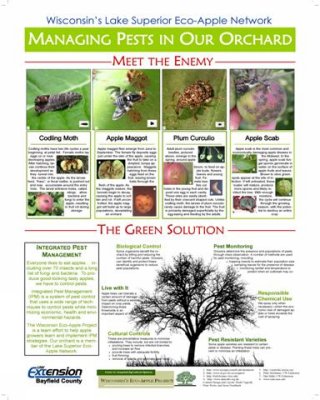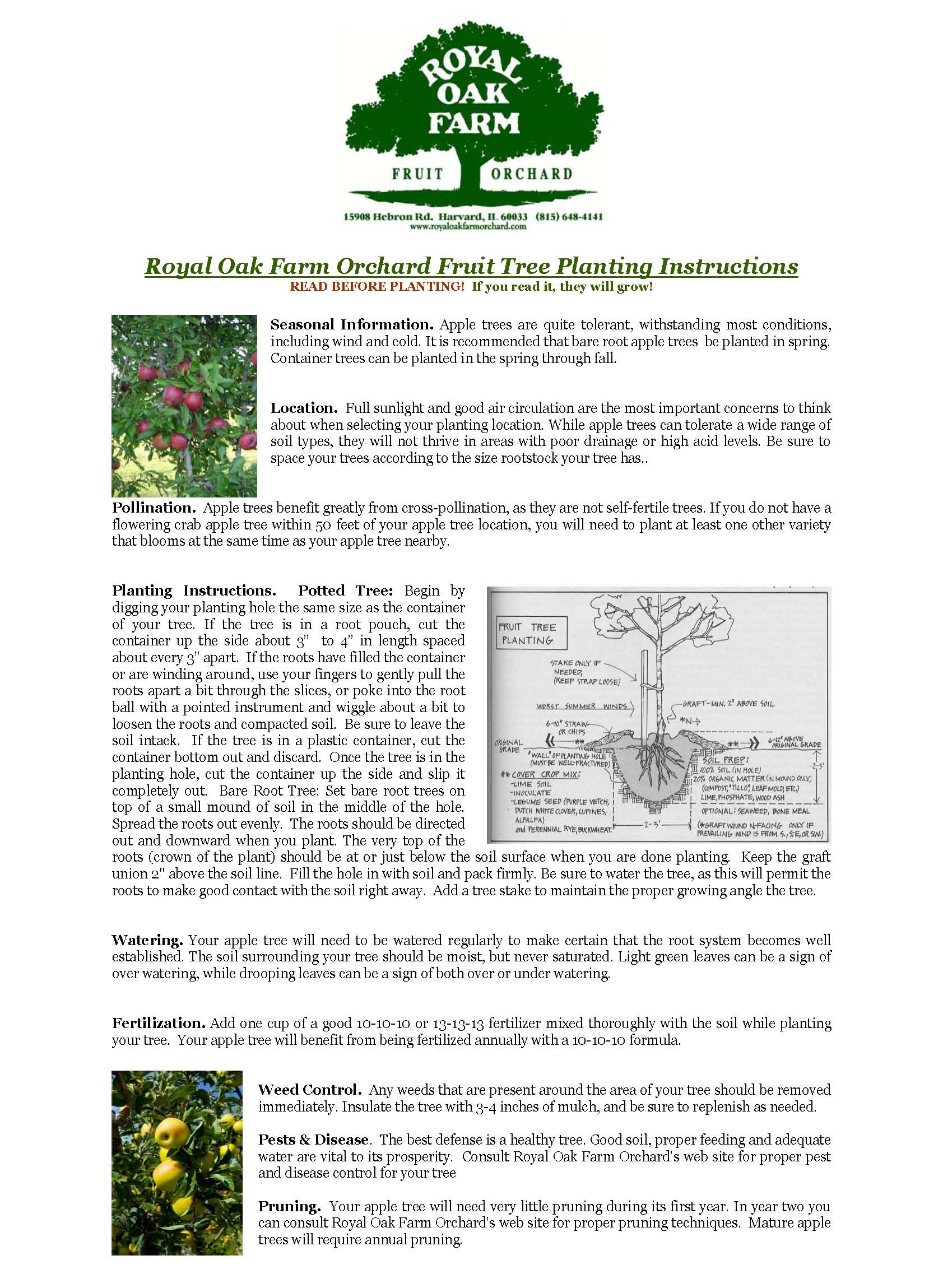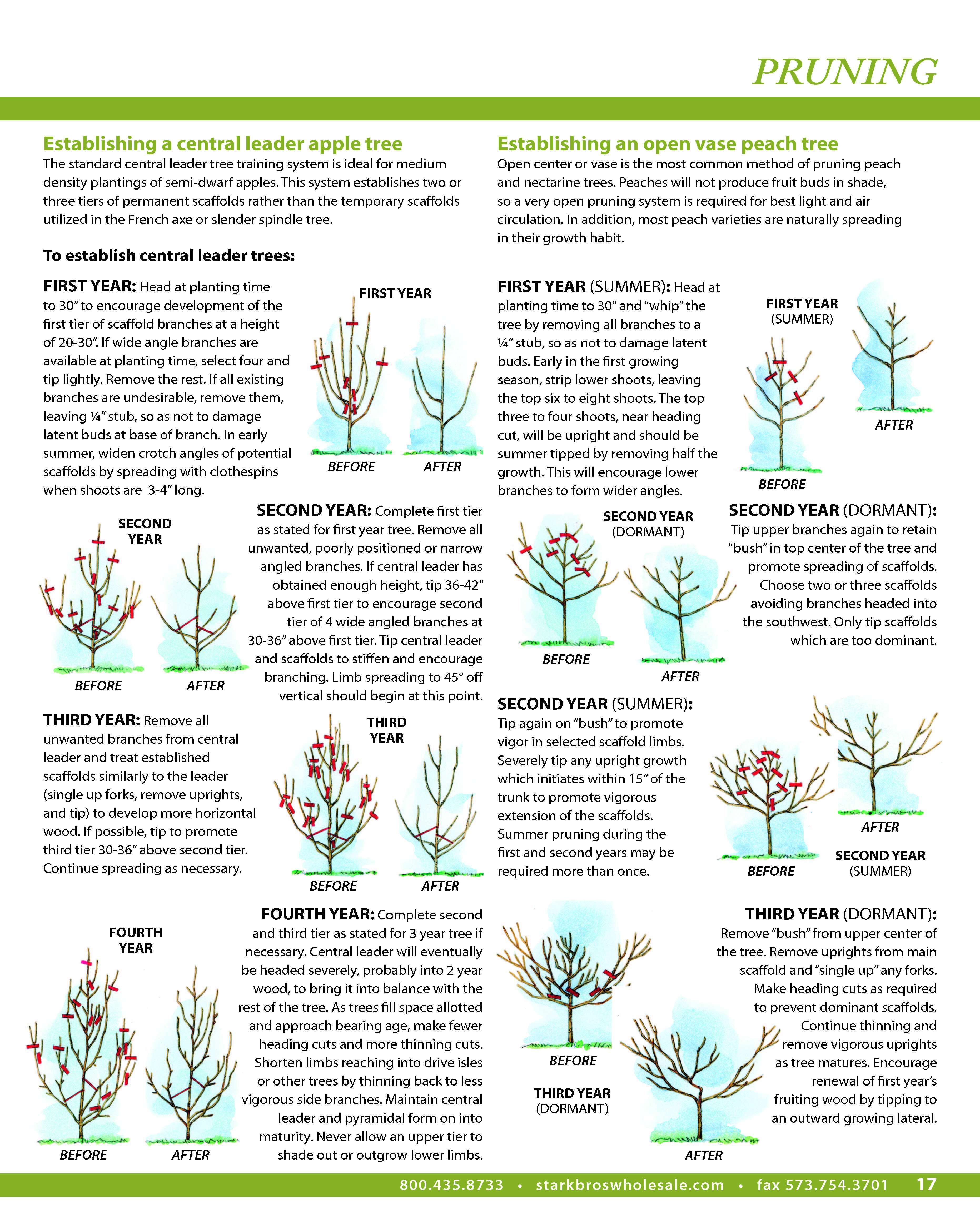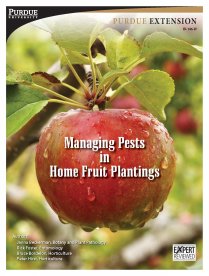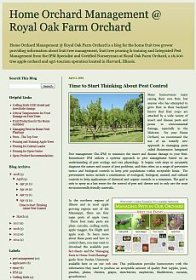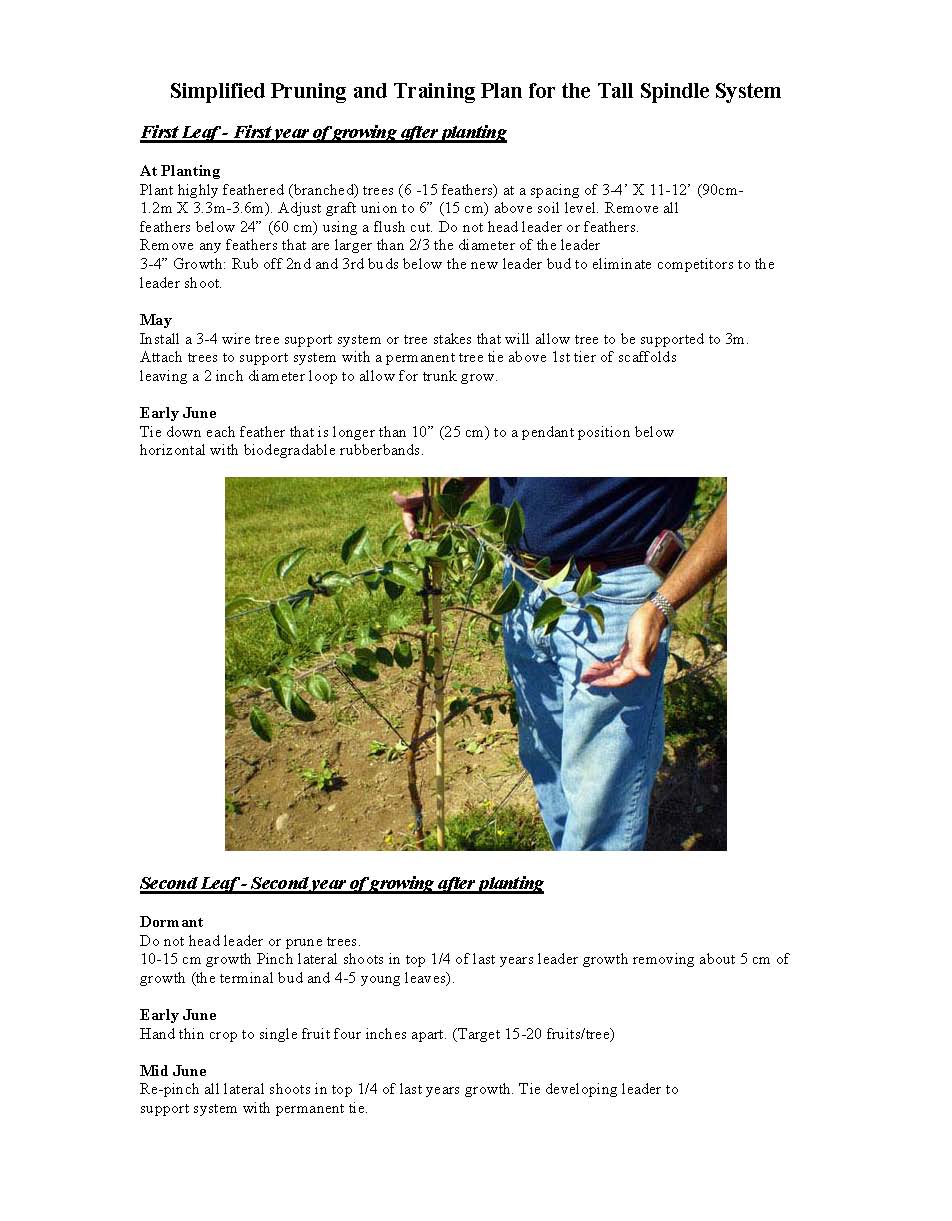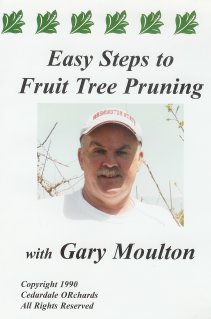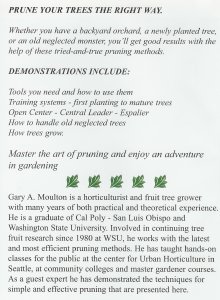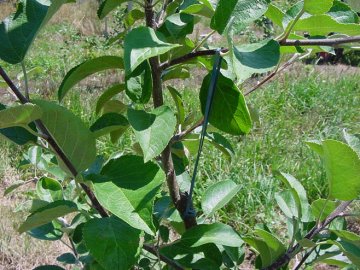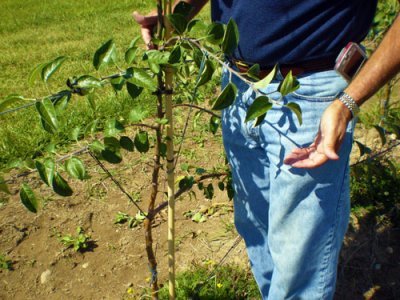 |
 | |  |
 |
 Many homeowners enjoy raising their own fruit, but anyone who has attempted to grow fruit in their backyard knows that fruit crops are attacked by a wide variety of insect and disease pests and are prone to environmental damage, especially in the Midwest. For your Home Orchard, we recommend the use of an entirely new approach to managing pests called Biointensive Integrated Pest management (Bio-IPM) to minimize the insect and disease damage to your fruit. Biointensive IPM utilizes a systems approach to pest management based on an understanding of pest ecology and tree physiology. It begins with steps to accurately diagnose the nature and source of pest problems, and then relies on a range of preventive tactics and biological controls to keep pest populations within acceptable limits. The preventative tactics include a combination of ecological, biological, natural, and cultural controls to keep applications of chemical and organic controls to a minimum. The goal is only to spray as a last resort for the control of pest and disease. Many homeowners enjoy raising their own fruit, but anyone who has attempted to grow fruit in their backyard knows that fruit crops are attacked by a wide variety of insect and disease pests and are prone to environmental damage, especially in the Midwest. For your Home Orchard, we recommend the use of an entirely new approach to managing pests called Biointensive Integrated Pest management (Bio-IPM) to minimize the insect and disease damage to your fruit. Biointensive IPM utilizes a systems approach to pest management based on an understanding of pest ecology and tree physiology. It begins with steps to accurately diagnose the nature and source of pest problems, and then relies on a range of preventive tactics and biological controls to keep pest populations within acceptable limits. The preventative tactics include a combination of ecological, biological, natural, and cultural controls to keep applications of chemical and organic controls to a minimum. The goal is only to spray as a last resort for the control of pest and disease.
 Often there are enough beneficials (insects that prey upon other insects) to control the pest(s) in your orchard without spraying. On other occasions you might use traps to catch pest species as they enter your orchard, or determine from the traps that there are too few of the pest to cause serious damage to your trees or fruit. But if you do have to control insect pests, there are many new, all natural products on the market today that can be nearly a 100% ecological solution. One of those products is spinosad, for example. Spinosad is a natural substance made by a soil bacterium that can be toxic to insects. It is a mixture of two abcterium (micro-organisms) called spinosyn A and spinosyn D. It can be used to control a wide variety of insect pests. But, always as a last resort, reduced-risk pesticides may need to be used if other tactics have not been adequately effective, and with care to minimize risks. Often there are enough beneficials (insects that prey upon other insects) to control the pest(s) in your orchard without spraying. On other occasions you might use traps to catch pest species as they enter your orchard, or determine from the traps that there are too few of the pest to cause serious damage to your trees or fruit. But if you do have to control insect pests, there are many new, all natural products on the market today that can be nearly a 100% ecological solution. One of those products is spinosad, for example. Spinosad is a natural substance made by a soil bacterium that can be toxic to insects. It is a mixture of two abcterium (micro-organisms) called spinosyn A and spinosyn D. It can be used to control a wide variety of insect pests. But, always as a last resort, reduced-risk pesticides may need to be used if other tactics have not been adequately effective, and with care to minimize risks.
 At Royal Oak Farm Orchard, we have our own IPM specialist to monitor a number of species of insects and mites in our orchard, including beneficial species (predators and parasites of pest species), as well as diseases. Each week of the growing season, we also consult with the Eco-Apple Project network of professional growers via weekly conference calls directed by a professional entomologist. A weather station in the orchard tracks temperature, rainfall, and humidity 24 hours a day, transmits this data to our weather computer, and we then use this information to monitor pest biology and the progress and severity of various diseases that can attack our fruit. Since most home growers do not have access to this type of technology, when you purchase fruit trees from our Nursery, you also get this same expertise with your purchase. Our IPM Specialist is at your disposal to help you assess your insect or disease problems At Royal Oak Farm Orchard, we have our own IPM specialist to monitor a number of species of insects and mites in our orchard, including beneficial species (predators and parasites of pest species), as well as diseases. Each week of the growing season, we also consult with the Eco-Apple Project network of professional growers via weekly conference calls directed by a professional entomologist. A weather station in the orchard tracks temperature, rainfall, and humidity 24 hours a day, transmits this data to our weather computer, and we then use this information to monitor pest biology and the progress and severity of various diseases that can attack our fruit. Since most home growers do not have access to this type of technology, when you purchase fruit trees from our Nursery, you also get this same expertise with your purchase. Our IPM Specialist is at your disposal to help you assess your insect or disease problems
 The benefits of implementing biointensive IPM include reduced chemical input costs, reduced environmental impacts, and more effective and sustainable pest management. An ecology-based IPM has the potential of decreasing inputs of natural chemicals and synthetic chemicals - all of which are energy intensive and increasingly costly in terms of financial and environmental impact. All these efforts make it possible for you to apply chemical controls only a few times each season when they are truly required. And we can recommend the use the most environmentally friendly materials available here in our Nursery Center. The benefits of implementing biointensive IPM include reduced chemical input costs, reduced environmental impacts, and more effective and sustainable pest management. An ecology-based IPM has the potential of decreasing inputs of natural chemicals and synthetic chemicals - all of which are energy intensive and increasingly costly in terms of financial and environmental impact. All these efforts make it possible for you to apply chemical controls only a few times each season when they are truly required. And we can recommend the use the most environmentally friendly materials available here in our Nursery Center.
 At Royal Oak Farm we are proud of the quality of the fruit we grow, and equally proud that through our monitoring efforts and the use of Biointensive Integrated Pest Management procedures. Because of these procedures, we only need to apply a few sprays to grow excellent products. We are happy to pass this information on to you, the Home Orchard grower! At Royal Oak Farm we are proud of the quality of the fruit we grow, and equally proud that through our monitoring efforts and the use of Biointensive Integrated Pest Management procedures. Because of these procedures, we only need to apply a few sprays to grow excellent products. We are happy to pass this information on to you, the Home Orchard grower! | |
 |
 | |  |
| |
 |














































